
Infant Nutrition for Immunity

HCP Education and Resources
Aptamil Infant & Toddler Range
The Aptamil Infant and Toddler Range provides nutritional support to toddlers and infants with a variety of health requirements. We recommend devising individualised plans for each of your patients to ensure early life nutrition, tailored to their individual circumstances and needs.

Which Aptamil products best suit your patient’s needs?
Our Aptamil product guide can help you find the right product for each of your individual patients and their unique needs.
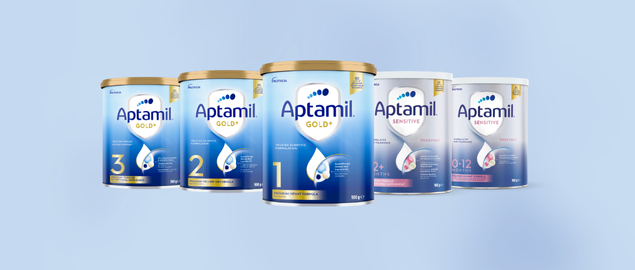
Supporting Formula-Fed Babies
Aptamil infant formulas are inspired by the nutritional composition of breast milk. The comprehensive range was created to nutritionally support formula-fed infants, providing essential nutrients.
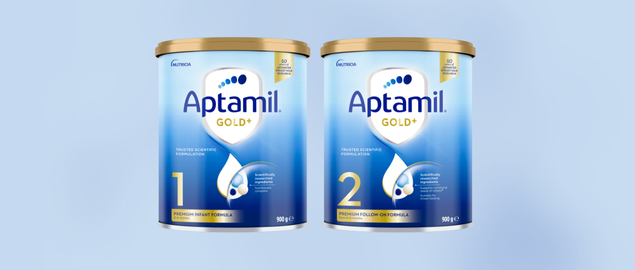
Advanced Infant Nutrition
Managing Clinical Conditions
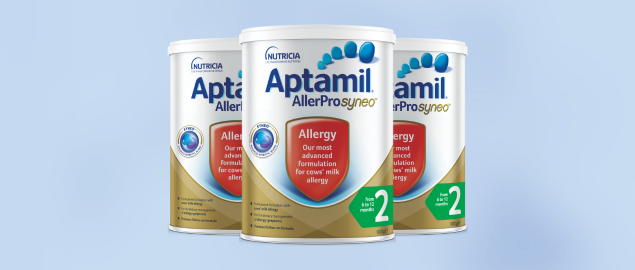
Managing Allergy with Aptamil
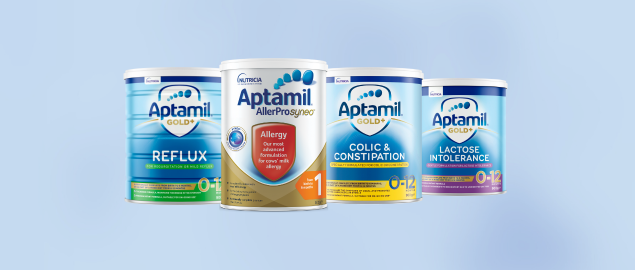
Supporting Infants with Gastrointestinal Disorders
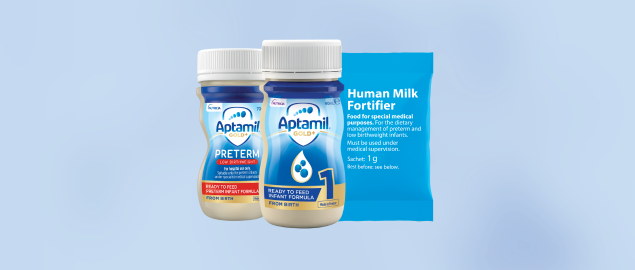
Hospital - Only Range
For Healthcare Professional use only – not distribution to the general public.
Nutricia products are intended for the nutritional management of diseases and related medical conditions and therefore should be used under medical supervision.
This information is general only and healthcare professionals should rely on their own skill and judgement when assessing and diagnosing patients
References:
|
1 – Godfrey, et al. Trends in Endocrinology and Metab. 2010;21:199-205. 2 – Bischoff, S. BMC Med. 2010;9:24. 3 – Cusick, et al. J Pediatr. 2016;175:16-21. 4 – Prentice, S. Front Immunol. 2017;8:1641. 5 – Notarbartolo, et al. Nutrients. 2023;15:4014. 6 – McKenzie, et al. Immunol Rev. 2017;278:277-95. 7 – Houghteling, et al. J Pediatr Gastroenterol Nutr. 2015;60:294-307. 8 – Ballard, et al. Pediatr Clin North Am. 2013;60:49-74. |
9 – Bischoff, S. BMC Med. 2011;9:24. 10 – Moro, et al. Arch Dis Child. 2006;91:814–9. 11 – Arslanoglu, et al. J Nutr. 2008;138:1091–5. 13 – Kunz, et al. Annu Rev Nutr. 2000;20:699–722.14 – Arslanoglu, et al. J Biol Regul Homeost Agents. 2012;26:49–59. 15 – Australasian Society of Clinical Immunology and Allergy (ASCIA). [cited 2025 Jan 10]. Available from: www.allergy.org.au. 16 – Vandenplas, et al. J Pediatr Gastroenterol Nutr. 2015;61:531–7. |
17 –Veitl, et al. Ernährungsmed. 2000;2:14–20. 18 – Schmelzle, et al. J Pediatr Gastroenterol Nutr. 2003;36:343–51. 19 – Savino, et al. Acta Paediatr Suppl. 2003;91:86–90. 20 – Savino, et al. Acta Paediatr Suppl. 2005;94:120–4. 21 – Savino, et al. Eur J Clin Nutr. 2006;60:1304–10. 22 – Bongers, et al. Nutr J. 2007;6:8. 23 – Wenzl, et al. Pediatr. 2003;111:E355-9. |
Support for you and your patients
Join now and learn about our education events, research initiatives and evidence-based resources – furthering your professional development and clinical practice.
Support for you and your patients
Support for you and your patients
Join now and learn about our education events, research initiatives and evidence-based resources – furthering your professional development and clinical practice.


